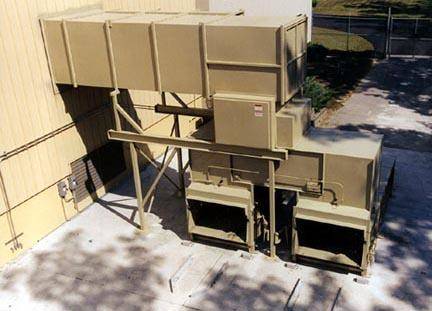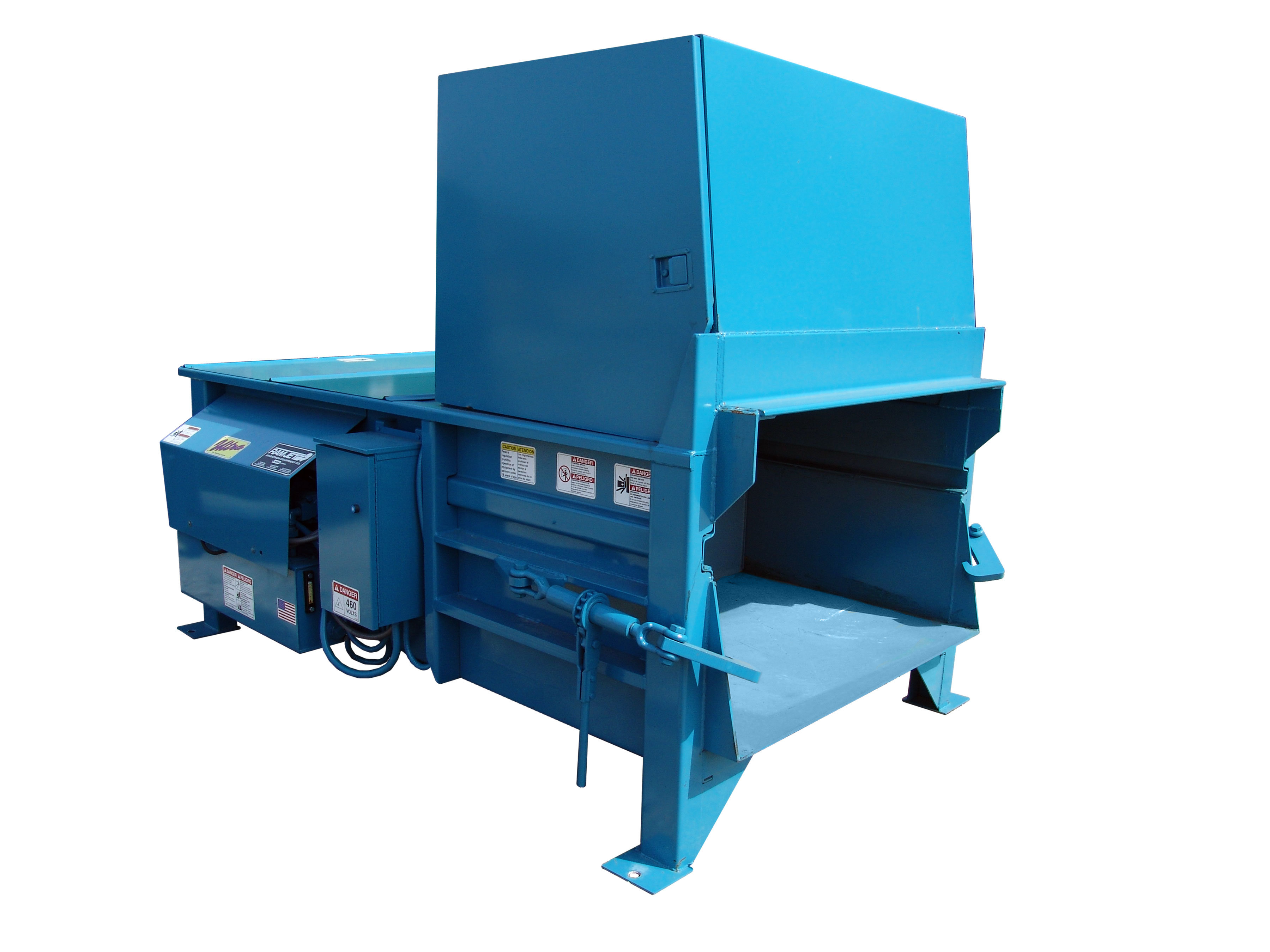Commercial garbage compaction equipment and its benefits in waste control
The Role of Waste Equipment in Promoting Sustainable Garbage Disposal Practices
Waste Equipment serves an essential role ahead of time lasting waste disposal practices. It incorporates a series of tools designed to boost the effectiveness of waste segregation, processing, and collection. By using Equipment such as compactors, shredders, and recycling bins, areas can considerably minimize their reliance on land fills. The effect of these devices prolongs past performance. Understanding their wider implications discloses understandings into just how they shape ecological responsibility and community interaction. What exists in advance in this evolving landscape?
Comprehending Waste Equipment and Its Relevance
Waste Equipment plays a crucial duty in effective waste administration systems. It includes a series of devices and equipment designed to manage, procedure, and deal with waste materials efficiently. Understanding waste Equipment is very important for organizations, districts, and businesses aiming to apply sustainable waste disposal techniques - Commercial garbage compaction equipment. Effectively functioning waste Equipment not just simplifies the collection and transportation of waste yet also minimizes environmental influence by making sure that waste is managed properly
The value of waste Equipment extends to boosting reusing initiatives, lowering land fill use, and advertising source recuperation. Equipment such as compactors, balers, and shredders help with the processing of waste, making it much easier to divide recyclable materials from general refuse. Additionally, advancements in waste modern technology add to the advancement of more eco-friendly services, thus reinforcing the dedication to sustainability. On the whole, waste Equipment functions as a foundation for efficient waste monitoring, cultivating a cleaner and much healthier environment for future generations.
Kinds Of Waste Equipment for Effective Waste Monitoring
Efficient waste management relies upon numerous types of Equipment made to attend to details disposal requirements. Amongst these, compactors play an essential duty by minimizing the quantity of waste, making transport much more reliable. Shredders are important for damaging down large things, facilitating much easier handling and disposal. Additionally, balers press recyclable materials right into manageable bundles, optimizing storage and transportation.
Containers and bins are fundamental for collecting waste at the source, guaranteeing appropriate segregation and decreasing contamination. For dangerous products, customized Equipment, such as drum crushers and leak-proof containers, is required to assure safety and compliance with policies.
Ultimately, transport automobiles equipped with hydraulic systems enhance the performance of waste collection and disposal processes. Each kind of waste Equipment adds to a streamlined waste monitoring system, advertising sustainability and reducing ecological influence through efficient disposal techniques.
The Duty of Recycling Bins in Lasting Practices
Reusing containers play a vital role in advertising sustainable methods by helping with effective waste separation. By offering assigned containers for recyclable materials, they motivate individuals to adopt environmentally friendly habits. This basic execution substantially adds to reducing garbage dump waste and boosting reusing prices.
Efficient Waste Separation
Proper waste splitting up plays an essential role in promoting lasting practices, and recycling containers function as a significant tool in this process. By clearly comparing recyclables, compostables, and general waste, these bins assist in efficient sorting, reducing contamination and maximizing reusing performance. Their critical positioning in public and private rooms urges individuals to join liable garbage disposal. In addition, making use of color-coded bins aids to simplify the separation procedure, making it user-friendly for individuals. This business method not just boosts reusing rates yet also raises awareness about the relevance of waste management. Basically, recycling containers are basic elements that support efficient waste splitting up, eventually adding to a more lasting environment and lowering the general pressure on garbage dumps.
Encouraging Eco-Friendly Habits
Although people may be inclined to forget their impact on the environment, the existence of recycling bins greatly influences environmentally friendly behavior. These containers act as visual tips, encouraging people to separate recyclables from general waste. Their tactical positioning in public areas advertises ease of access, making it much easier for people to adopt lasting practices. Research studies show that when reusing bins are available, recycling prices enhance significantly, mirroring a direct connection between infrastructure and habits. In enhancement, vivid signs on these bins educates customers about what materials can be recycled, reducing contamination rates. By fostering a culture of recycling, these bins not only help with appropriate waste management however additionally inspire a collective responsibility toward ecological stewardship, inevitably contributing to an extra sustainable future.
Composting Solutions: Turning Waste Into Resources
Composting systems serve as a vital device in changing organic waste into valuable sources, using many ecological advantages. Numerous kinds of composting Equipment provide to different needs, making the procedure obtainable to both neighborhoods and individuals. Recognizing the composting process is essential for maximizing its performance and advertising lasting waste monitoring methods.
Advantages of Composting Systems
Several areas are significantly acknowledging the various benefits of composting systems, which change organic waste into beneficial resources. These systems properly lower garbage dump waste, therefore lowering greenhouse gas discharges and conserving natural deposits. By transforming food scraps, lawn waste, and various other organic products right into nutrient-rich compost, they enhance dirt health and fertility, advertising sustainable agriculture practices. In addition, composting helps to maintain moisture in the dirt, reducing the requirement for chemical plant foods and watering. It cultivates biodiversity by offering an environment for valuable microbes and insects. Furthermore, composting enlightens individuals regarding ecological stewardship, motivating a society of sustainability. Generally, composting systems play an important duty in creating a circular economic situation, where waste is lessened, and sources are recycled.
Types of Composting Equipment
A range of composting Equipment is readily available to help with the efficient handling of organic waste into useful garden compost. These systems range from basic yard compost bins to sophisticated business composters. For home use, tumblers and fixed bins here are the findings are preferred, permitting manageable oygenation and blending. Aerated static heaps use blowers to boost air flow, substantially speeding up decomposition. Large-scale operations may utilize in-vessel composters, which manage temperature level and moisture for perfect composting conditions. Worm composters, or vermicomposting systems, harness the natural digestion procedures of worms to break down raw material. In addition, shredders and chippers help prepare materials by reducing size, promoting faster breakdown. Each kind of Equipment offers certain demands, enabling diverse composting practices that add to lasting waste administration.
Composting Process Explained
The composting process transforms organic waste right into nutrient-rich sources with a series of chemical and organic responses. Bacteria such as fungis and germs break down organic products, including food scraps and lawn waste. This decay produces warmth, assisting in additional microbial task and speeding up the malfunction process. As the garden compost develops, the temperature lowers, permitting helpful organisms to prosper. The existence of oxygen is vital, advertising cardiovascular problems that enhance microbial performance. Throughout this procedure, carbon-to-nitrogen proportions should be preserved to maximize decomposition. Completion outcome is humus, a dark, brittle compound rich in nutrients, which can be made use of to enhance soil, assistance plant development, and add to lasting farming methods.
Innovative Technologies in Waste Collection and Disposal
As cities face increasing waste quantities and environmental problems, innovative modern technologies in waste collection and disposal emerge as crucial services. Smart waste bins geared up with sensors track fill levels, maximizing collection paths and decreasing gas consumption. These containers can additionally interact with waste monitoring systems, assisting in prompt pickups and lessening overflow issues. Additionally, autonomous lorries, including drones and robot systems, are being released to boost functional efficiency in waste collection.
Improvements in arranging technologies, such as expert system and machine understanding, allow extra efficient reusing processes by rapidly identifying and separating products. Waste-to-energy modern that site technologies transform natural waste right into renewable energy, reducing have a peek at this website landfill reliance and adding to power sustainability. These technologies not just simplify waste management methods but also promote a circular economy, thus fostering a sustainable approach to throw away disposal. Eventually, the combination of these innovations plays a critical role in dealing with urban waste obstacles and boosting ecological stewardship.
Area Involvement With Waste Equipment
While efficient waste administration relies greatly on advanced technologies, community involvement with waste Equipment plays a necessary role in cultivating lasting methods (Commercial garbage compaction equipment). Waste Equipment, such as recycling bins and composting stations, offers not only as useful tools but additionally as drivers for community understanding and participation. By positioning these sources in available locations, districts urge individuals to take an energetic function in waste reduction and reusing initiatives
Educational campaigns coming with waste Equipment setups can further boost area involvement, leading homeowners on proper disposal approaches and the advantages of lasting techniques. Furthermore, neighborhood events that make use of waste Equipment, such as clean-up drives and recycling obstacles, inspire cumulative action and develop a feeling of duty among area participants.

The Future of Waste Administration and Lasting Solutions
Developments in technology and changes in social mindsets are shaping the future of waste management and sustainable remedies. Smart waste management systems, utilizing IoT devices, are making it possible for real-time surveillance of waste degrees, enhancing collection paths, and minimizing carbon footprints. These developments not just boost effectiveness but additionally promote reusing and composting efforts by offering data-driven understandings.
Additionally, the surge of circular economy practices urges companies to reassess product design, concentrating on reusability and recyclability. This change cultivates a society of sustainability, where consumers are increasingly requiring environmentally friendly items.
Area involvement in waste administration is coming to be progressively crucial, with academic programs equipping people to take duty for their waste. As governments worldwide execute stricter guidelines on garbage disposal, organizations and communities are triggered to adopt lasting methods. Together, these components pave the way for a future where waste is lessened, and resources are saved, guaranteeing a healthier earth.
Frequently Asked Concerns

Exactly How Can Services Benefit Economically From Buying Waste Equipment?
Investing in waste Equipment can result in considerable financial benefits for businesses. By boosting effectiveness, decreasing disposal expenses, and improving reusing abilities, business can reduce operational expenses and possibly generate profits through recouped materials.
What Rules Control the Use of Waste Equipment in Various Regions?
Numerous guidelines govern waste Equipment use, varying by region. These consist of environmental criteria, safety protocols, and functional standards, targeted at guaranteeing conformity, promoting public health and wellness, and minimizing environmental influence related to waste administration techniques.
How Do I Select the Right Waste Equipment for My Demands?
Selecting the proper waste Equipment demands assessing certain waste kinds, volume, and disposal techniques. Looking into offered alternatives, speaking with professionals, and thinking about regulatory conformity will assist in making an informed decision customized to individual needs.
What Are the Environmental Impacts of Inefficient Waste Equipment?
Inefficient waste Equipment can bring about increased emissions, higher energy usage, and greater land fill overflow. It typically causes inappropriate waste partition, worsening contamination and negatively affecting communities, which eventually hinders sustainable waste monitoring efforts.
Exactly How Can Waste Equipment Be Maintained for Optimal Efficiency?
Waste Equipment can be kept for peak efficiency through regular examinations, prompt fixings, proper cleansing, and adherence to manufacturer standards. This assures performance, expands Equipment life expectancy, and decreases ecological influence during waste management processes.
Waste Equipment plays a crucial function in effective waste monitoring systems. Comprehending waste Equipment is essential for services, organizations, and communities aiming to carry out sustainable waste disposal methods. While effective waste administration counts heavily on innovative technologies, area engagement via waste Equipment plays a vital duty in fostering sustainable techniques. Community participation in waste monitoring is becoming progressively important, with instructional programs encouraging individuals to take duty for their waste. Selecting the proper waste Equipment necessitates examining particular waste kinds, volume, and disposal techniques.